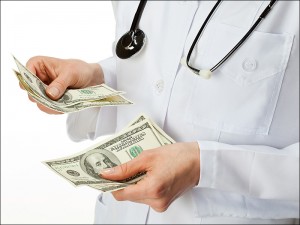 The Louisiana Supreme Court may soon answer this question. In Hoffman v. 21st Century N. Am. Ins. Co., No. 2013-CA-0054 (La. Ct. App. 1 Cir. Mar. 27, 2014), the Louisiana First Circuit Court of Appeal held that a plaintiff cannot benefit from such a discount.
The Louisiana Supreme Court may soon answer this question. In Hoffman v. 21st Century N. Am. Ins. Co., No. 2013-CA-0054 (La. Ct. App. 1 Cir. Mar. 27, 2014), the Louisiana First Circuit Court of Appeal held that a plaintiff cannot benefit from such a discount.
In Hoffman, Eddie Hoffman sued Carolyn Elzy after she rear-ended him in Baton Rouge on October 7, 2010. At trial, the court found the defendant to be 100% at fault and awarded the plaintiff $4,500 in general damages and $2,478 for medical expenses. The plaintiff appealed, claiming that the award for medical expenses should have been $4,528. Although the plaintiff’s lawyer negotiated a discount of the medical bill from $3,000 to $900, the plaintiff argued that under the collateral source rule his medical expenses should be calculated by using the undiscounted cost of the medical services.
The Louisiana Supreme Court in Bozeman v. State, 2003-1016 (La. 7/2/04), 879 So. 2d 692, 698, held “[u]nder the collateral source rule, a tortfeasor may not benefit, and an injured plaintiff’s tort recovery may not be reduced, because of monies received by the plaintiff from sources independent of the tortfeasor’s procuration or contribution.” That is, a tortfeasor cannot benefit from a plaintiff whose damages are covered by an outside source like insurance. Rather, the tortfeasor is liable for the full cost of the damages he caused. In rejecting the “reasonable value of services” approach and the “actual amounts paid” approach, the court adopted a “benefit of the bargain” rationale under which a plaintiff who has paid consideration for the benefit of the discount may collect the undiscounted sum from the defendant. In Bozeman, the court concluded that Medicaid recipients are unable to collect the Medicaid write-off amounts as damages because they provide no consideration for the Medicaid benefit.
Applying Bozeman, the First Circuit in Hoffman concluded that the plaintiff could not benefit from the discount negotiated by his lawyer because he provided no consideration (such as “an enrollment fee,” wage deductions or premiums) for this collateral source benefit. The Supreme Court granted writs to review this decision, received briefs, and heard oral argument on May 5, 2015.
While it will be interesting to see what the Louisiana Supreme Court does with the collateral-source issue, this practice may raise potential ethical problems. More particularly: Does a lawyer who negotiates a discount with a treating physician and who then attempts to recover the full “cost” from the defendant violate Rule 4.1—which prohibits a lawyer from “knowingly” making “a false statement of material fact or law to a third person”—if he fails to disclose the discount? Although that did not occur in Hoffman, a lawyer cannot claim to have incurred $1,000 in medical expenses when, in fact, the client’s (discounted) medical expenses actually totaled $250. Presumably, plaintiff’s lawyers are not collecting back-door discounts after reporting prediscounted numbers as special damages. Are they?
